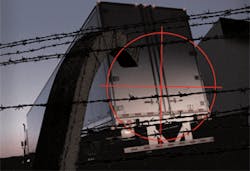A new global study indicates that 75% companies worldwide suffered from sort of fraud incident in the past year, a rise of 14 percentage points in just three years, with the biggest fraud threat coming from within.
According to the 2015 Kroll Global Fraud Report, of those companies where fraud occurred and the perpetrator was identified, four in five (81%) suffered at the hands of at least one insider, up from 72% in Kroll’s previous survey.“One of the most telling results from this year’s report is how vulnerable to fraud companies are feeling. In one form or another, the specter of fraud arises in virtually every business relationship,” noted Daniel Karson (seen at right), Kroll’s Chairman, in a statement.
“What our report drives home is that fraud is often an ‘inside job’ and companies must address both internal and external relationships if they are to most effectively protect their money, property and private data.”
Kroll’s report further noted that more than one in three corporate victims (36%) experienced fraud at the hands of a member of their own senior or middle management, 45% at the hands of a junior employee, and for 23%, the fraud resulted from the conduct of an agent or intermediary.
Similarly, among companies that experienced information/data loss, theft or attack over the past 12 months, the most common cause was employee malfeasance, involved in 45% of incidents, with vendor/supplier malfeasance involved in 29% of incidents.
By comparison, only a small minority involved an attack by an external hacker on the company itself (2%) or on a vendor/supplier (7%), Kroll said.Here’s a data point of which trucking should take careful note: One in three (33%) executives responding to the survey cite high staff turnover as the main driver of increased exposure to fraud. This is more than twice as many who named the next highest driver of vulnerability to fraud, greater outsourcing (16%).
Karson also added another dimension to the fraud issue: In a global marketplace where many international businesses have thousands of companies in their supply chain, he stressed that fraud risks are becoming more difficult to identify and keep under control.
Executives say their companies are particularly at risk of threats such as vendor, supplier or procurement fraud, with half of respondents (49%) feeling highly or moderately vulnerable to this type of incident.
Some 40% of respondents felt highly or moderately vulnerable to corruption and bribery, another type of fraud that has the propensity to increase as companies expand geographically into new territories.
Indeed, Kroll’s study found that in the past year, 72% of companies were dissuaded from operating in a particular country or region because of the heightened exposure it would bring to fraud.Latin America (cited by 27% of all respondents) was the region which saw most businesses turn away, but the other perennial region of concern, Africa, was not far behind (22%).
“While technology has enabled new ways to perpetrate fraud, our daily work with clients confirms what the report also reveals — that old fashioned theft, bribery and kickbacks are still amazingly effective and pervasive,” Karson said. “Human nature being what it is, fraud will always be with us, whether it occurs in a company’s corner office or a world away in its supply chain.”
It should be noted that construction industry – a sector that generates a lot of trucking’s business – is being particularly hard hit by fraud, at least according to Kroll’s survey.
Three quarters (75%) of construction, engineering and infrastructure companies have experienced a fraud incident in the past year, according to the firm’s findings, which revealed the most common type of fraud experienced construction to be theft of physical assets or stock, experienced by 36% of construction companies, followed by vendor, supplier or procurement fraud (24%).
Those are some of the highest incidence rates of any sector surveyed and are second only to levels experienced by the retail industry, Kroll stressed, with construction sector respondents also reporting the highest level of regulatory or compliance breach fraud (18%) of any business sector surveyed.Nine in ten (92%) respondents in the construction industry say their exposure to fraud has increased in the last year, the highest increase in fraud exposure of any sector. The biggest drivers of this are high staff turnover (49%) and entry to new, riskier markets (21%). In terms of responsibility, a senior executive or middle manager was involved in a fraud against the company at just under a third (32%) of all construction firms surveyed.
Yet despite problems caused by high staff turnover, only 30% of construction companies are looking to invest in background screening in the coming year and just 25% plan to spend on management controls – less than the survey average.
How much of threat does “insider fraud” pose to trucking? I dug into that issue in a blog post a couple of years ago; a post that noted that not only is the threat posed by the “inside job” on the rise, but that it’s “curative” is close at hand as well: a “curative” Kroll’s report dubbed “the whistleblower effect.”
“In the past year, a whistleblower was at least partially responsible for exposing 41% of cases of fraud that were uncovered,” the firm noted. “This is well ahead of the next two most frequent sources of discovery, external audits (31%) or internal audits (25%).”
Kroll’s findings show that anti-fraud efforts can have an impact on the threat from within. Of those firms hit by fraud where the perpetrator was known, only 20% of those with management controls in place suffered at the hands of a senior or middle manager, compared to 31% of firms without such controls.
“In an environment where insiders are the source of the problem, other employees who observe or become aware of what fraudsters are doing are the company’s strongest defense,” noted Karson.
That’s a positive, at least.




